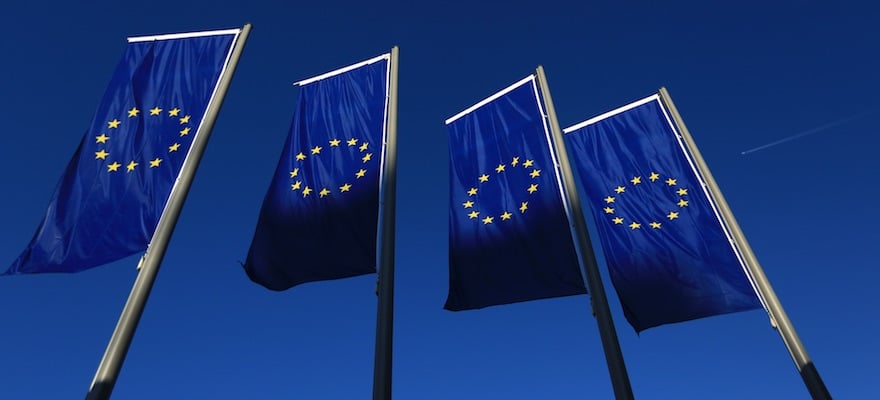This article was written by Andy Young, Global Head of Solution Sales, Colt Technology Services
Brexit has been an important subject for all businesses, individuals and institutions that live and work in the UK for nearly a year. Following the results of the general election, what lies ahead is unclear.
The London Summit 2017 is coming, get involved!
For the capital markets sector in the UK, Brexit could have a significant effect. As an industry that works on a global, always-on basis understanding the implications of what domestic restrictions may come into force when Brexit is fully underway next year is essential.
Brexit will raise many challenges, from political to staffing, business strategy and infrastructure, and because the situation is so unclear, it’s impossible to address these with any certainty. However one thing is clear, businesses will need to be able to continue to operate during and after the UK’s exit from the EU and technology will prove to be crucial for the future of all financial firms, not just those based in the UK.
Keeping a close eye on Europe
London has always been the centre of European capital markets and the decision to leave the EU is seen by some as an opportunity to decentralise the dominance held by one market. Cities including Frankfurt, Madrid, Dublin, Paris, and Amsterdam have been trying to tempt financial services companies to move jobs and activities away from London.
Some banks have already started moving operations out of London with the promise of more relocation to come. Clearly many factors go into making London the centre of European financial services, some of which are difficult to replicate, but if these EU cities have greater flexibility diluting that position is a possibility.
As well as the entrenched position that London enjoys, its dominance has been supported by the EU banking passport. Many European officials have warned UK banks of the issues that they may come up against if they lose their EU banking passport, one being reduced trading access to the 27 EU states.
The UK has some tough negotiating to do if this comes into play, and only time will tell what the post-Brexit landscape will look like. That said, inevitably some firms will move and they will still need to be able to trade within Europe’s capital markets framework. London has, over the course of several decades, build up a web of interconnections both locally and internationally that will be hard to replicate in other financial centres but new connections will need to be built and new infrastructure created - on both sides of any relationship.
Trading organisations need to monitor where banks are moving to within Europe and be prepared to change their infrastructure to maintain current trading capabilities. A change in infrastructure is a significant and expensive undertaking, but ensuring reliable and flexible connectivity to all markets is essential.
Laying the groundwork for global connectivity
In times of uncertainty, such as now, organisations need to look at their operations at a global level and consider what is needed to allow for continued interconnectivity between markets in a multitude of potential scenarios. Whatever the final repercussions of Brexit are, firms will need to be able to quickly connect to markets that they have perhaps not needed to before.
To achieve this global reach, companies need to have flexible, scalable infrastructure and this flexibility is the lynchpin essential to business continuity. Scalability, although not directly linked to Brexit, is an important consideration given the increased capacity demands of new regulations and trading models.
With a higher demand on connectivity comes a heightened level of network reliance. Firms will need to demand more from their network providers to ensure they are on the same playing field as those that continue to operate within the EU framework. It’s only through ensuring that they can continue to operate on a global scale that organisations can begin to plan for what happens post-Brexit.
The alternatives
With connectivity and network capabilities paramount to safeguarding against Brexit outcomes, firms need to understand what alternatives are out there for them. Effective ecosystem services and solutions are already in place that make the location of a trading company in many cases less relevant. In particular, new deployment models such as the cloud - legal and regulatory demands notwithstanding - allow firms to operate from anywhere on the planet with little impact on latency or oversight.
If cloud is right for a company’s needs, it is crucial that understanding which cloud option is suitable for them. Models for cloud delivery of specialised data, trading and regulatory solutions for delivery of end-to-end solutions are emerging and the recent upsurge in RegTech, TradingTech, and market data startups are not only well represented but may mean that much of the infrastructure costs are reduced. The decision to move to cloud, and which flavour of cloud to move to have been well documented but suffice to say that Regulation , data privacy and security factors need to be addressed.
Any decision made about how to cope with the aftermath of Brexit must be tempered with the understanding that, at this point, all outcomes are possible. Trading organisations need to get a plan in place for all eventualities that may arise, and although it isn’t always easy to plan for an unclear future, infrastructure can be reviewed and alternatives explored.





















